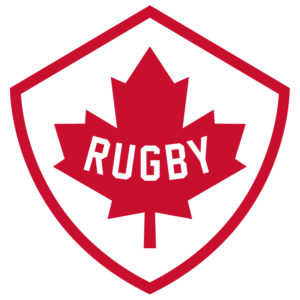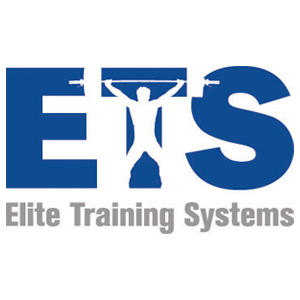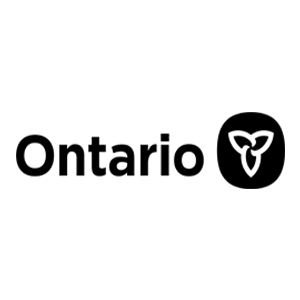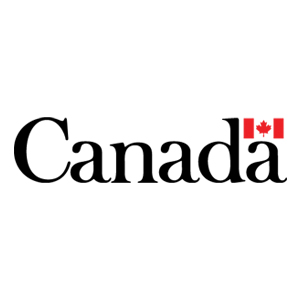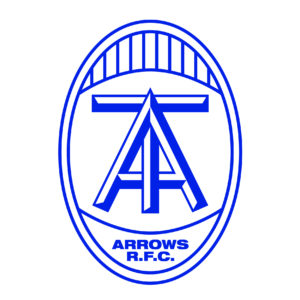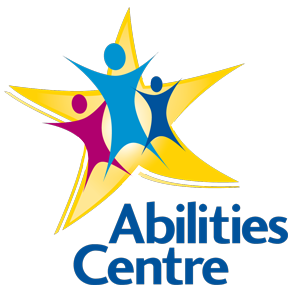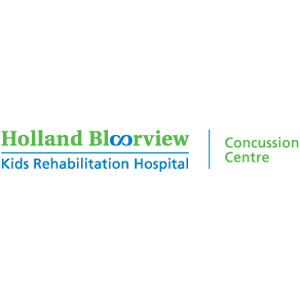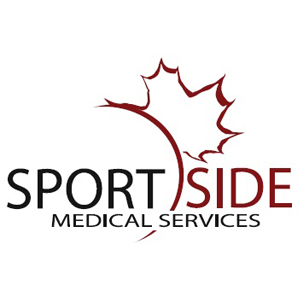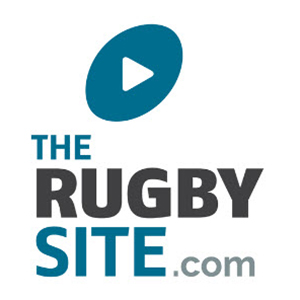Club Information
Provincial Union Requirement
Provincial Unions are to appoint a COVID-19 Manager as a point of contact to both Rugby Canada, the Union’s Member Organizations and members of the public. The manager should have operational knowledge regarding COVID-19. Where possible, clinical knowledge of COVID-19 is preferable, but if not the COVID-19 manager should have access to appropriate clinical advice. The manager will coordinate efforts within their Union for a phased approach to training and play. They will coordinate with Member Organizations providing information and strategic support. The Provincial Union COVID-19 Manager job description is available in Appendix (b) of the Return to Play Plan.
The Rugby Ontario COVID-19 Manager is:
- Joe Schissler: jschissler@rugbyontario.com
- COVID-19 Manager dedicated email address: covid19manager@rugbyontario.com
To support our response to COVID-19 and Return to Play, an advisory panel has been formed to provide operational and clinical knowledge to our COVID-19 Manager and the community. Additionally, Rugby Ontario staff will be assigned to groups of clubs to provide assistance through the development and revision of their plans and application for sanctioning – the pace of which will of course be determined the Member Organization.
Member Organization Requirements
Members Organizations must identify and appoint one or more COVID-19 Safety Coordinator(s) to be responsible for implementing the Rugby Ontario Return to Play plan (and all other relevant guidance, advice and instruction regarding COVID-19) in respect of certain discrete elements, such as particular training facilities, match day venues (when permitted to resume games) and team travel.
Member Organizations are to inform Rugby Ontario of the appointment and provide contact details of the individual in the manner directed by Rugby Ontario.
Education
The President (or equivalent) of the Member Organization and their appointed COVID-19 Safety Coordinator(s) must complete World Rugby’s COVID-19 Return to Play Awareness for Administrators. As stated by World Rugby, this is a resource developed to guide a safe return to rugby activities.
The first section provides general information and the second section provides more specific information for Administrators who are pulling together Club / School / Union Return to play policies. At the end of both sections there are simple awareness tests which check for the participants understanding.
Completion of these modules will help individuals to demonstrate that they are ready to help their institution return to train and play. Certificates from completing the course will be required when submitting the Member Organization’s sanctioning request.
Identify, Assess & Document Risk
All Member Organizations will need to complete the Rugby Canada Risk Assessment Tool and Mitigation Checklist.
This Risk Assessment Tool & Mitigation Checklist will lead Member Organization’s in their identification and assessment of risk as it relates to facilitating rugby activities and programming under the Return to Play protocols and government / public health restrictions. The tool will help shape a COVID-19 Safety Plan that is required as part of the Member Organization Return to Play Sanctioning Process. It is intended to help minimize risk and identify specific reason(s) why a Member Organization may want to reconsider a return to play. The Risk Assessment Tool & Mitigation Checklist will aid in the overall process of accepting and managing risk to ensure a safe environment for all participants and their households. Completing this document does not give permission for and immediate return to play; rather, it provides a baseline of information to allow Member Organizations, their leaders and members, to make informed decisions about facilitating and participating in sanctioned rugby activities.
Member Organizations are encouraged to regularly identify, assess/re-assess, and monitor all risks to their community.
COVID-19 Safety Plan
All Member Organizations will need to complete a COVID-19 Safety Plan that effectively takes all necessary precautions to mitigate, transfer or avoid the identified risks both common to all sporting activities and unique to your rugby and facility operations.
Member Organizations may choose to capture this Safety Plan either in the excel Risk Assessment Tool & Mitigation Checklist.
Update Emergency Action Plans
All Member Organizations must review and update their Emergency Action Plans in light of the COVID-19 pandemic. An example Emergency Action Plan – COVID-19 Addendum is available in Appendix (f) of the Return to Play Plan.
As examples, the following aspects of your Emergency Action Plan should be considered and updated as appropriate:
- Location & access to first aid kit
- Emergency Services access points
- Assembly points (e.g. in the event of lightening & severe weather)
Apply for Approval – Sanctioning Process
This Return to Play plan has been approved by the Rugby Ontario Board of Directors and meets the requirements of Rugby Canada. Rugby Ontario has been granted authorization by Rugby Canada to sanction requests by its Member Organizations to resume rugby activities in accordance with this plan.
Rugby Ontario will facilitate a sanctioning process for all Member Organizations, ensuring receipt of the following information and compliant documents, in order to graduate through each Phase of Return to Play outlined in this Plan:
- Name and contact details of appointed COVID-19 Safety Coordinator
- World Rugby’s COVID-19 Return to Play Awareness for Administrators Certificates for the Member Organization’s President (or equivalent) and appointed Safety coordinator
- Completed Risk Assessment
- COVID-19 Safety Plan
- Updated Emergency Action Plan
Once approved, Rugby Ontario will provide a Sanctioning Agreement for signing.
Additionally, all Member Organizations are responsible for ensuring that they identify and seek approvals from any other stakeholders required to resume rugby activities legally and safely. This may include Provincial or Local Governments, Health Authorities, facility owner or operator. For example: municipal parks and recreation authorities for clubs utilizing city permitted facilities.
Highly Recommended Steps
Education
It is highly recommended that any individual required to approve Return to Play or COVID-19 Safety Plans complete World Rugby’s COVID-19 Return to Play Awareness for Administrators.
It is highly recommended that any individual responsible for delivering in-person rugby activities completes World Rugby’s COVID-19 Return to Play Awareness for Coaches & Players.
If a Member Organization is going to ask board and staff to complete either course, it is highly recommended that the Member Organization requests and stores their certificates as a record of completion.
As stated by World Rugby, these courses are a resource developed to help everyone in the rugby community during the COVID-19 pandemic and to guide a safe return to rugby activities. Completion of these modules will help individuals to demonstrate that they are ready to return to train and play.
Communication of Responsibilities & Expectations
It is highly recommended that Member Organizations create a communications plan to regularly reinforce current Provincial or Regional public health advice to its membership, supporting them to make informed decisions about their personal and household risk.
These communications may also include reminders of ‘Rules of Engagement’, including the Right of Refusal, and any other specific instructions that support reducing the risk of COVID-19 transmission and represent best practice.
How to Safely Manage Return to Play
The following steps must be considered, and Member Organizations must detail specific measures they will take to effectively reduce or eliminate the risk of COVID-19 transmission. All mandatory steps must be detailed in the submitted COVID-19 Safety Plan, as well as any details of any highly recommended steps being taken.
Mandatory Steps
Registration of all Participants
All participants must be registered prior to attending any in-person rugby activities. This applies to players, coaches, therapists, and officials. As the Rugby Canada registration portal, provided by SportLomo, includes a Participant Agreement that has been updated to explicitly address the known risk of COVID-19, it’s most important that registration is completed by the participant or the participant’s legal guardian.
No coach or club administrator should ever complete registration on behalf of their members.
Rugby Canada and Rugby Ontario have made non-contact player categories available. Even when it is just non-contact, all participants must still be registered to be covered by the National Insurance Program and be permitted participate in sanctioned rugby activities.
If Rugby Ontario progresses to low-contact, players will need to ‘upgrade’ their membership to the ‘contact’ player categories. Given the exceptional circumstances, Rugby Canada and Rugby Ontario will credit the non-contact membership paid against the cost of ‘upgrading’ to the contact membership of the appropriate category.
Attestation of all Participants
As a requirement in force by Rugby Canada, any Provincial Union or Member Organization delivering in-person activities must adopt and facilitate a daily COVID-19 attestation and agreements to be completed by all registered participants (i.e. coach and players).
To reduce touch points and to easily store responses, the Member Organization delivering in-person activities is required to facilitate daily attestations. The SportLomo plaform will be utilized to provide Member Organizations with a tool to facilitate the daily attestation being completed by all registered participants prior to starting any rugby activity. See Appendix (h) in the Return to Play plan for an example of the attestation agreement to be used at all levels. The daily attestation will require a signature to complete the required process.
Daily attestations must be safely stored by the Member Organization for at least two (2) years in the event a claim arises naming the Member Organization or one of its members.
Attendance Tracking
Any Member Organization delivering in-person activities must record all participants’ (i.e. coach and players) attendance at all in-person activities. This applies to both intra-club (e.g. training and in-house games) and inter-club (e.g. leagues) activities, when permitted under this plan.
To reduce touch points and to easily store attendance records, it is highly recommended that all Member Organization delivering in-person activities utilise the Rugby Canada registration portal, provided by Sportlomo, to record attendance. This platform will also allow coaches to assign training groups within a team session.
How to Safely Deliver Return to Play
The following steps must be considered, and Member Organizations must detail specific measures they will take to effectively reduce or eliminate the risk of COVID-19 transmission. All mandatory steps must be detailed in the submitted COVID-19 Safety Plan, as well as any details of any highly recommended steps being taken.
Mandatory Steps for Facility Operations
Limiting Use of Facility
Until further notice, all rugby activities are to take place outdoors only. In relation to those rugby activities, only the washrooms of a facility and/or clubhouse may be made available for participant use.
Until further notice, any water fountain may only to be used to refill a water bottle. No participants are permitted to drink directly from the water fountain or any faucet. Participants are encouraged to properly sanitize prior to and after using any water fountain to reduce the risk of transmission.
Cleaning Protocols
Any Member Organization delivering in-person activities, must document the enhanced cleaning protocols that will be implemented for any high touch areas such as handrails, door handles, counter tops, sinks, taps, toilets, soap dispenses etc. Member Organizations must document their enhanced cleaning protocols in their COVID-19 Safety Plan. This may include ‘transferring’ this responsibility to third-party providers (e.g. private cleaners or cleaners provided by the facility owner), but this must be made clear in the Safety Plan.
Coronaviruses are one of the easiest types of viruses to kill with the appropriate disinfectant product when used according to the label directions. Health Canada has published a list of hard surface disinfectants that are likely to be effective for use against COVID-19. Use only approved hard-surface disinfectants that have a Drug Identification Number (DIN). A DIN is an 8-digit number given by Health Canada that confirms the disinfectant product is approved and safe for use in Canada. Careful consideration of use around children, pregnant women, breast-feeding mothers or other vulnerable populations should be given when utilizing cleaning and/or sanitization products.
Facility Access & Flow
To effectively plan for and manage maximum event gathering restrictions, any Member Organization delivering in-person activities, must plan and clearly communicate to all participants access points of the facility, including car parking, and, when appropriate, implement flow patterns and staggered arrival/departure times. The need of these measures is greatest in the early phases of this Plan when event gatherings are limited to a small number of people and physical distancing must be maintained.
Other Users
Do not forget to factor in other users that may be able to freely access your fields and plan clear communications or signage that help both your participants and the public respect each other’s space. For other permitted user groups, you may have to coordinate arrivals and departures if the facility owner has not provided time or distance spacing between user groups.
Mandatory Steps for Rugby Operations
Player Groups & Managing Adherence to Restrictions
Any Member Organization planning to deliver in-person activities, must first consider which participant groups are best served by resuming in-person activities at each phase of the Return to Play Plan. In addition to considering if those players are at a higher risk for severe illness from COVID-19, also consider their ability to understand and follow physical distancing instructions.
In Phases 2 and 3, Member Organizations are required to maintain training groups for all sessions in a two-week period. This limits the expansion of a participant’s “bubble”.
When assigning players to training groups, consider if traditional forwards and backs groupings are necessary or if training groups can be more focused on social or family groupings. This might be a consideration for youth players that have largely been excluded from their social groupings with school closures.
Rule of Two
To ensure an open and observable environment for all interactions between adults and participants, plan to have two appointed adults present and included in the maximum event gatherings permitted at that time.
If participants are minors or vulnerable adults, this Rule of Two must be adhered to. If short of club coaches or volunteers, ask a parent to be present throughout the session. The second adult should be able to easily hear and see all interactions of the coach / session leader.
For more information on the Rule of Two and the Responsible Coaching Movement visit: https://coach.ca/three-steps-responsible-coaching
Designate First Aid Responder
As is standard practice, all in-person rugby activities sessions must have a designated first aid responder.
Until further notice, the designated First Aid Responder must wear a non-medical mask or cloth face covering for the duration of the in-person session. This will enable the First Aid Responder to quickly and safely attend to anyone requiring assistance.
The designated First Aid Responder must be educated on how to correctly wear a non-medical mask. Please reference the Public Health Agency of Canada’s video or poster.
Please note, medical masks are not to be sourced for rugby activities as they remain essential for health care providers and others providing direct card to COVID-19 patients. For additional information on the use of masks and face coverings, refer to the Public Health Ontario resources.
Training Processes
As stated in World Rugby’s Safe Return to Rugby document due to the movement involved in sports, the physical distance should be kept as generous a distance as possible. In addition to planning what a session will consist of, plan how available outdoor space will be used and how players will safely move throughout the session.
While social distancing measures remain, all team meetings and huddles must take place outdoors where all individuals are able to practice physical distancing. If being held in-person, team meetings or huddles should be brief. If greater communication is needed, consider other options including digital/online meetings. Remember, whether in-person or online, adhere to the Rule of Two.
Equipment Use and Cleaning Protocols
Any Member Organization delivering in-person activities must document the enhanced cleaning protocols that will be implemented for any shared equipment that will be used.
As advised by World Rugby’s Chief Medical Officer Eanna Falvey, Gilbert’s instructions for cleaning match and training balls are adequate to kill the bacteria. Before and after all in-person sessions, rugby balls must be cleaned by “a soft cloth, a light detergent and warm water”.
If instructing players to bring their own ball for their own use, participants must be asked to follow Gilbert’s cleaning instructions before arriving at each session.
Any other rugby equipment planned for use must be cleaned before and after with the appropriate disinfectant product according to the label directions. Health Canada has published a list of hard surface disinfectants that are likely to be effective for use against COVID-19. Use only approved hard-surface disinfectants that have a Drug Identification Number (DIN). A DIN is an 8-digit number given by Health Canada that confirms the disinfectant product is approved and safe for use in Canada. Careful consideration of use around children, pregnant women, breast-feeding mothers or other vulnerable populations should be given when utilizing cleaning and/or sanitization products.
Highly Recommended Steps for Facility Operations
Rugby Ontario recognises that a significant number of Rugby Clubs own and/or operate clubhouses for their members, private users and/or the general public. For the purposes of this plan and the National Insurance Policy, any Member Organization that decides to open their clubhouse for whatever use does so at their own risk and should hold separate insurance coverage for these separate operations.
Until further notice, the Rugby Canada Insurance Policy will not be made available to any claims related to clubhouse use or social activities facilitated by Member Organizations.
If choosing to re-open clubhouses for social activities, the Member Organization does so at its own risk. It is highly recommended that any Member Organization adhere with relevant Provincial laws and licensing requirements, as well as current COVID-19 Emergency Orders and guidelines, ensuring compliance and responsible operations are documented and implemented.

